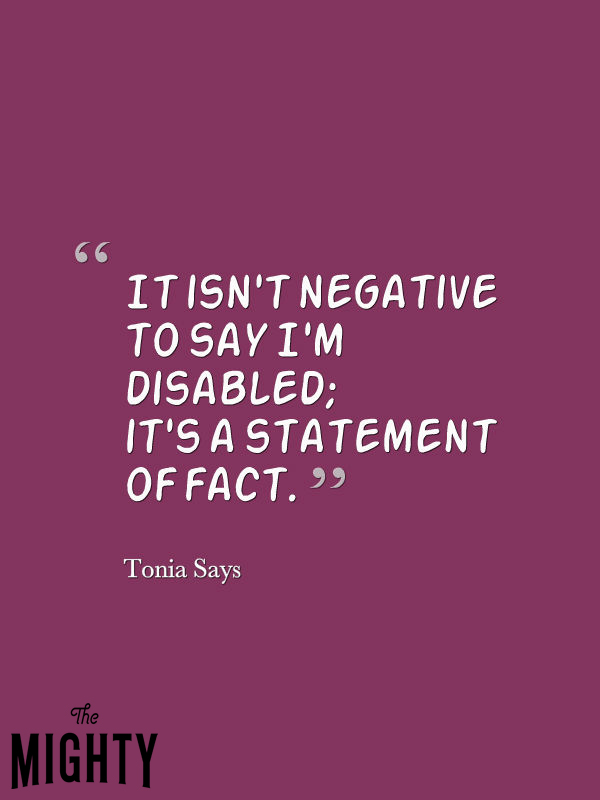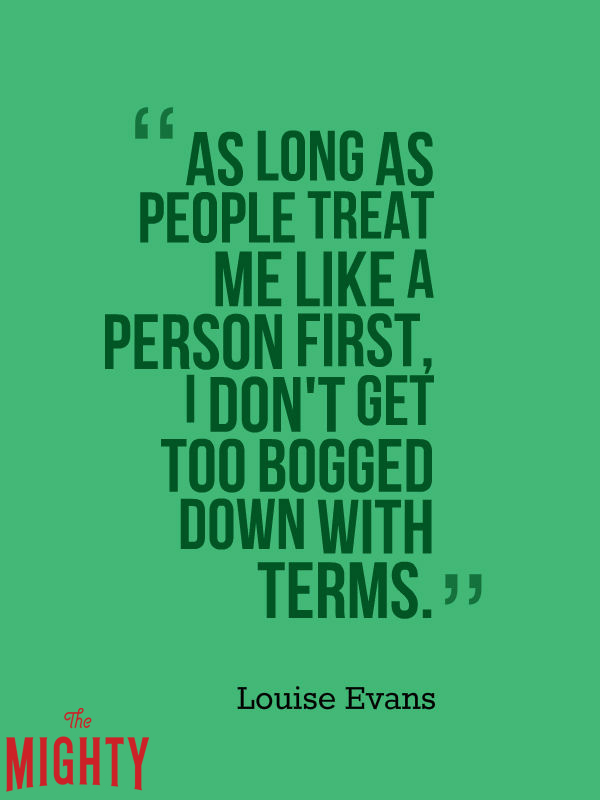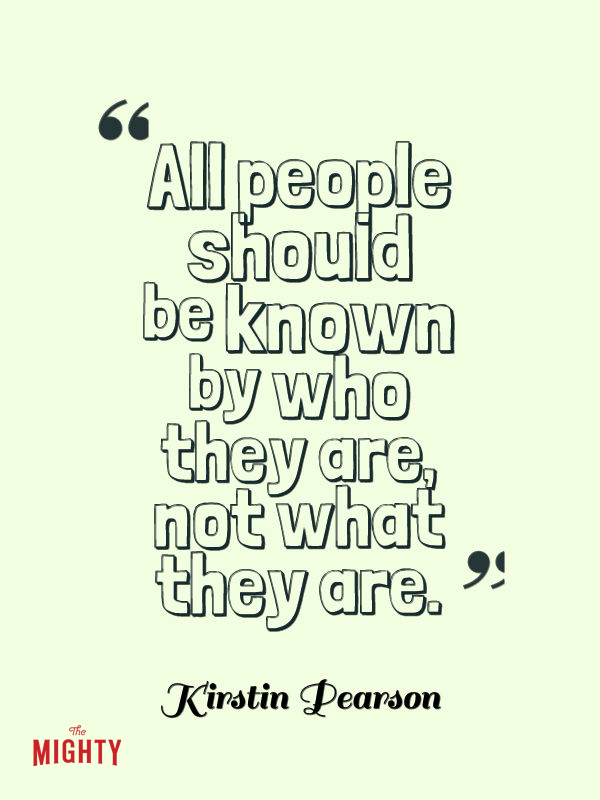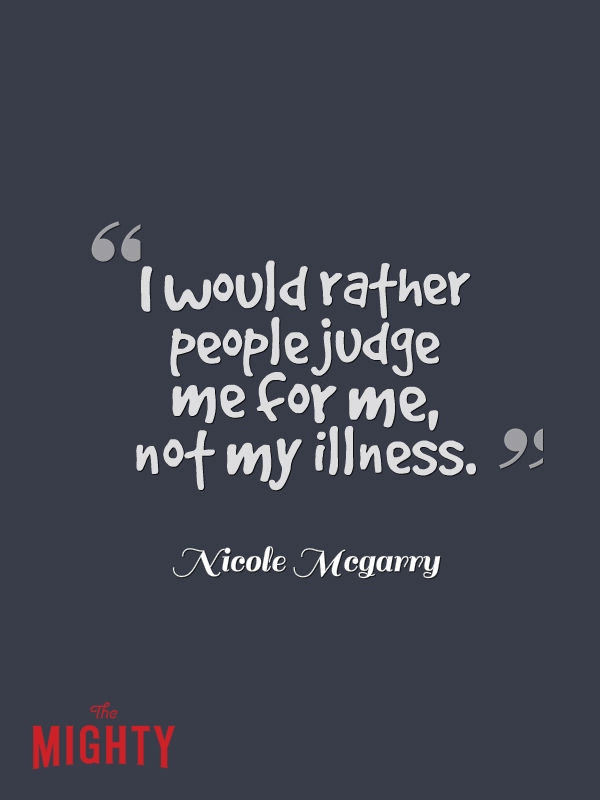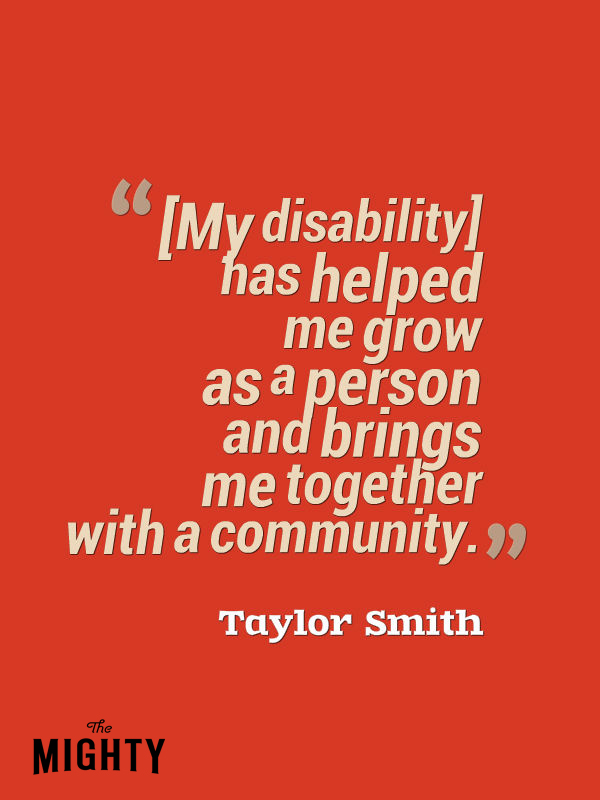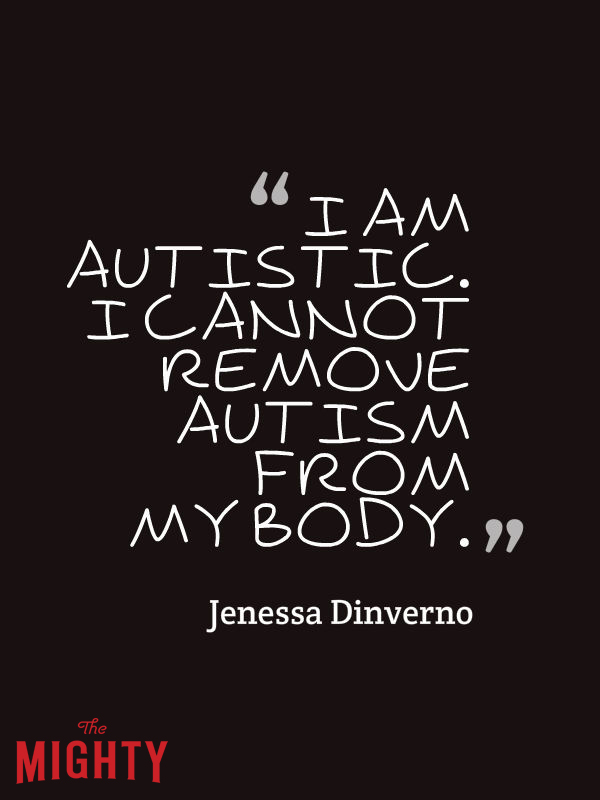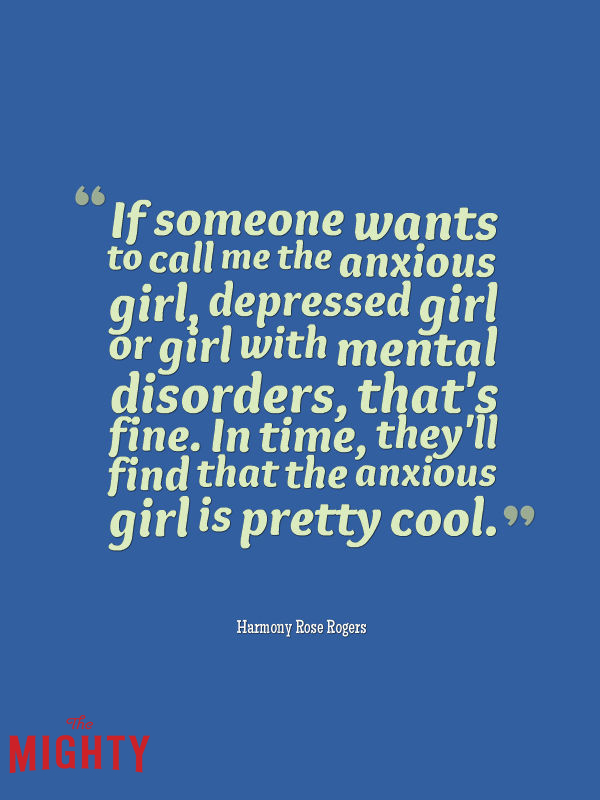The use of person-first and identity-first language has been a frequent topic on The Mighty. Some readers and contributors prefer to be referred to with person-first language, where the person comes before the disability in the description (e.g. a “person with autism”). Others prefer identity-first language, which puts the disability or disorder first in the description (e.g. an “autistic person”).
The Mighty wanted to hear from people with disabilities about which type of language they prefer. We asked our readers on Facebook to share whether they favor person-first language, identity-first language or don’t have a preference. The answers we received were informative and important, and everyone agreed that regardless of what kind of language you prefer, the most important thing is to respect others for who they are.
Take a look at some of the responses below, and let us know what type of language you prefer in the comments below.
1. “I have cerebral palsy, and I prefer identity-first language. I consider my disability to be an inextricable part of my identity as a human being. It isn’t negative to say I’m disabled; it’s a statement of fact. [My disability] is a huge part of my identity and how I experience the world. To me, person-first language implies a degree of shame or negativity about disability. I embrace my disability because it influences so much of how I see and experience the world.” — Tonia Says
2. “I prefer person first language. I am a person with a disability, not a disabled person.” — Barbra Dijak
3. “I refer to myself as a disabled person, and I don’t have a problem with others doing so. Like so many things, it’s up to the individual to decide what they’re comfortable with, but as long as someone means well, it’s fine with me. I think insisting on person-first language can make a situation more awkward and makes people seem like they’re tiptoeing around you and, ironically, can make you feel more like an ‘other.’ As long as people treat me like a person first, I don’t get too bogged down with terms.” — Louise Evans
4. “I have Asperger syndrome and bipolar disorder. In my professional capacity as a counselor, I will use person-first language if that is what the client prefers. However, [I dislike it] when people use person-first language toward me, mostly because it comes in the form of ‘correcting me’ whenever I say, ‘I’m autistic’ or ‘I’m bipolar.’ For me, I’ve come to associate person-first language as those outside the disabled community telling those inside how they should think of themselves.” — Molly Thynes
5. “I have a number of physical disabilities, and I have no preference. What matters to me is that the surrounding conversation indicates that whoever I’m talking with sees me as a person and respects me fully as such.” — Irina Greenman
6.”One hundred percent person-first. We are not defined by what others suppose to be deficits. All are differently unique. All people should be known by who they are, not what they are.” — Kirstin Pearson
7. “I’m autistic, and I like being called that. I don’t consider it ‘identity-first’ language; it’s merely an adjective. ‘A person with autism’ feels unwieldy and awkward to me. I’m also an English professor and writer, not ‘a person who teaches literature at the college level’ or ‘a human being who writes.’ But that’s just me. I have complete and utter respect for those whose preferences differ from mine, and I honor those preferences when I’m made aware of them.” — Daniel Bowman Jr
8. “Person first. I may be bipolar, but I would rather people judge me for me, not my illness.” — Nicole Mcgarry
9. “Person first. Always. I am more than my disability.” — Jennifer M. Skains
10. “Identity first. Disability is a part of who I am. It’s helped me grow as a person and brings me together with a community. Also, it’s not my health that disables me — it is society’s unwillingness to accommodate us.” — Taylor Smith
11. “It doesn’t really matter to me. It’s just commonly used English to put an adjective in front of the noun it describes. I have more important things to worry about than what order words go in.” — Kallie Locklair
12. “I believe the group of people who actually have a certain disability have a right to say what they prefer. I prefer identity first. I am autistic. I cannot remove autism from my body. It is my neurotype. Just as I am tall, I am autistic. I do not ‘have tallness.’ It makes being tall sound negative that way. Saying ‘I have autism’ separates the autism from me. It makes autism sound negative. People can ‘have cancer,’ but cancer is viewed as negative and separate from the person. I am autistic. (I am tall, too.)” — Jenessa Dinverno
13. “I usually like people to say a ‘person who is blind,’ not a ‘blind person.’ I am a person first, blind second.” — Harjinder Saran
14. “Every person has a different preference. Neither bothers me. If someone wants to call me the anxious girl, depressed girl or girl with mental disorders, that’s fine. In time, they’ll find that the anxious girl is pretty cool. I try to ask those who have disabilities or disorders what their preference is because I can’t assume either way.” — Harmony Rose Rogers

